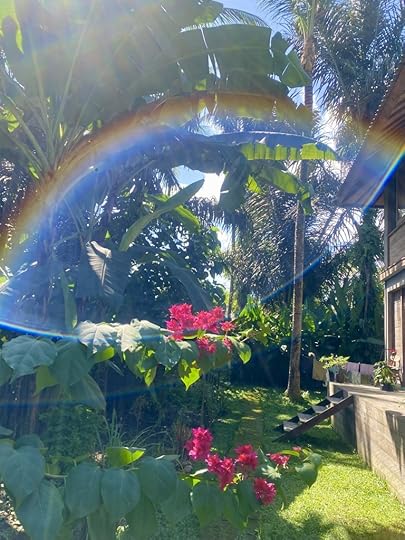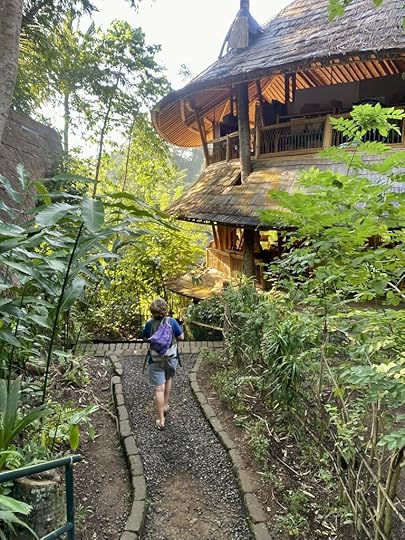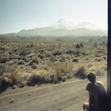Perfection is the most unnatural way of life
Nothing is more life-denying than fighting against the law of life: everything is on the way, and not in its final form.
Daniel Quinn, The Story of B
This quote from Daniel Quinn’s book The Story of B might appear simple, but it contains deep wisdom that seems to have been forgotten in the mainstream culture of our time-era.
Everything is on its way, and not in its final form. This is the law of life. And as much as we might view our time-era as the most evolved and accomplished in human history, it is the most stagnant one ever to have existed — and hence the most life-denying and rigid, and the most unsustainable.
Why?
Because it goes against the law of life: the law of everything always being on its way and the law of abundance.
Because it goes against the law of life: the law of everything always being on its way and the law of abundance.
We are concurrently getting surpassed by technology; AI and robots can do many things better, quicker and smarter than us. So, finding out (and improving and honoring) what is uniquely human should be our focal point.
Maybe this involves nourishing the senses and sense-experiences that make us human; touch, tastes, scents. Because whereas robots can be created to see and listen, the senses of touch as well as our ability to taste and smell and get aesthetically nourished herefrom is uniquely human.
It could also include a renewed focus on and respect for crafts, the perfectly imperfect creations made by human hands for human hands. Or creation of music, literature, art that isn’t perfectly polished, but due to is playfulness, such as the creation of new words or sentences, or of asymmetrical compositions.
 My garden
My gardenA sustainable way of life is a justifiable way of life, and fighting against the natural development of things and natural abundance is not justifiable. It is stagnant and unmaintainable. This stagnancy manifests as climate change, as overpopulation, as natural disasters, as famine, as pandemics, as pollution, as depression, as exploitation of humans, animals and natural resources, as overconsumption, as extinction of species, as devastating homogeneity, as inequality, as cultural poverty, as despair, and as arrogance.
We tend to think that our time-era favors development and innovation, but actually, the way we innovate and develop is disrespectful to the law of life. Our most innovative products are not made to support development and to be on their way; they are designed to be experienced as obsolete after a short period of usage so that the wheel of consumption can keep turning.
Our modern way of life is stagnant as it is filled with unsatisfying routines and empty calories in the shape of mindless entertainment and overpriced convenience food, and hence not built up around abundance and natural growth. We have sacrificed the colorful variation of cultures, ways of life, and the abundance of nature on the altar of homogenization, convenience and perfection.
 My son walking to school
My son walking to schoolIf nothing is in its final form why seek perfection — or why even talk about perfection? What is perfection? The perfect face, the perfect body, the perfect mind? The perfect tree, the perfect apple, the perfect egg? The perfect dog, the perfect ant, the perfect butterfly? Why seek clones of the “perfect being” (whether that being a farmed pig, a flawless apple, or the perfectly shaped and smoothened human face and body) when that is the most unnatural way of life — well, even life-denying?
The law of life is abundance, Quinn also states in The Story of B, and abundance involves diversity: there aren’t two leaves, ants, cats, birds, mites, cows, apples, oak trees, or humans that are the same, so why seek a uniform look and shape and name it perfection? The smooth, symmetrical, impersonal look that characterises each artificially modeled, gene modified, and smoothened fruit, animal or tree (or human face for that matter) is not justifiable, is not sustainable. It constitutes the opposite of life, of abundance. It is stagnant.
Rewilding nature doesn’t mean returning to an “original” perfect stage. It isn’t possible as everything is always in process, and is always on its way. And, rewilding the late-modern human being does not include maintaining an eternal state of youth — or returning to a perfect, smooth, unblemished starting point. That is not life, that is not development, that is not progress.
Our approach to sustainability has stagnated, and is stuck. Sustainability is about sustaining, not about perfection — because there is no such thing as perfection.
Sustainability is furthermore not about circularity — because circular economy and development comprises an immense strain on the natural environment; breaking things down and reconstructing them into new, perfect objects is not natural, is not justifiable, is not natural.
Rather, sustainable development should be focused on iterations; on being in motion, on always evolving and getting better, but never on becoming perfect.
Because perfection is the end, and there is no end.



